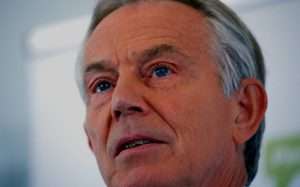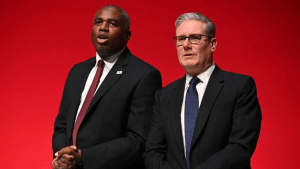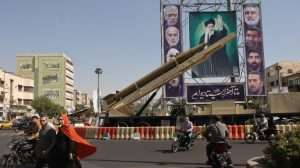Israel rejects Trump’s Gaza withdrawal plan

Demonstrators at Kaplan Interchange calling for an end to the war and the release of hostages in Gaza.
Israeli Prime Minister Benjamin Netanyahu has confirmed that Israeli forces will remain in Gaza despite international calls for a phased withdrawal under a U.S. proposal, Middle East Eye reported on September 30th.
His stance has drawn criticism both domestically and abroad amid a nearly two-year conflict.
Trump’s 20-point plan, unveiled on September 29th, outlined a gradual Israeli pullback, transferring authority over the Gaza territory to an International Stabilisation Force. The framework emphasized that Israel would not annex Gaza and left open the possibility of eventual Palestinian statehood.

Netanyahu stated that Israel intends to maintain a military presence across much of Gaza. Speaking on his Hebrew-language social media, he said: “Now the entire world is demanding that Hamas accept our terms – the release of hostages while our forces remain in control of most of Gaza.” He also reiterated his opposition to forming a Palestinian state.
Earlier in August, Netanyahu said that Israel plans to “control Gaza but not govern it,” signalling a long-term military presence without administrative responsibility. And his government’s announcement to expand operations into Gaza City sparked large demonstrations in Tel Aviv, with organisers estimating that over 100,000 people took part.
Reports indicate that Netanyahu blocked at least seven ceasefire agreements during the war, even when Hamas appeared willing to comply with Israeli demands. Officials said far-right cabinet members, including National Security Minister Itamar Ben Gvir and Finance Minister Bezalel Smotrich, influenced these decisions.
The Trump plan has been welcomed by the UK, Germany, and several Arab states. Yet Netanyahu’s public rejection of key provisions—withdrawal and statehood—casts doubt on the plan’s effectiveness.
Meanwhile, the conflict continues to lead to a heavy death toll. On September 30th, at least 30 Palestinians were killed in Gaza.
All in all, Netanyahu’s statements and actions reflect a strategy of maintaining military control in Gaza while avoiding political compromise or Palestinian sovereignty. This approach has provoked large-scale protests, criticism from allies, and accusations of placing political survival above opportunities for peace.
Middle East Eye, Maghrebi.org
Want to chase the pulse of North Africa?
Subscribe to receive our FREE weekly PDF magazine













